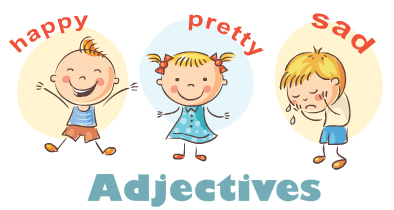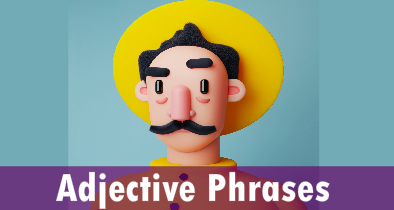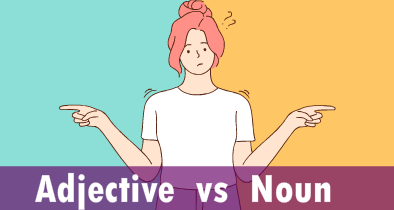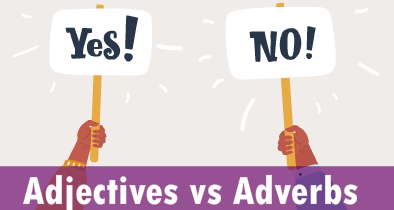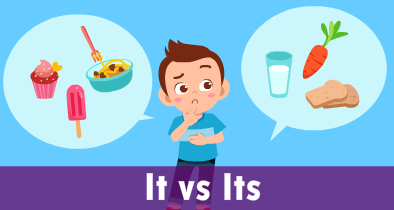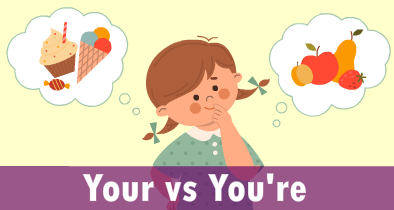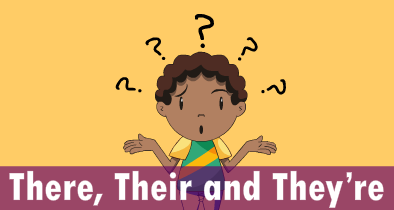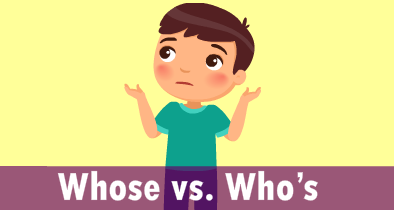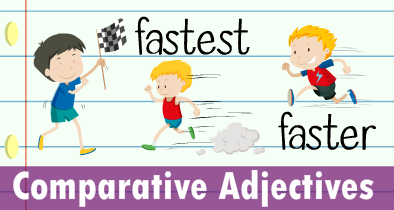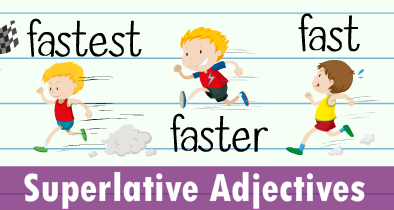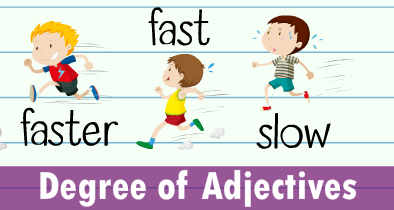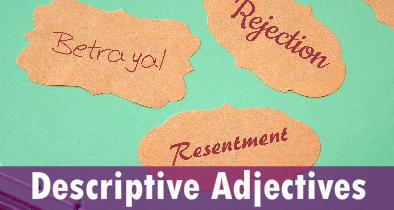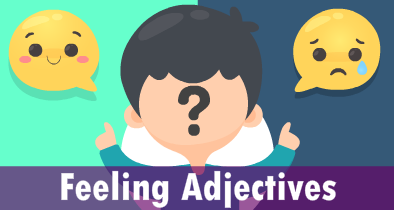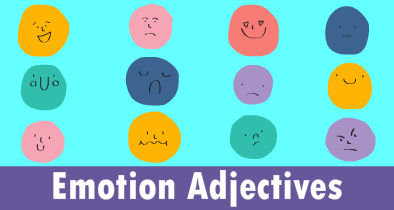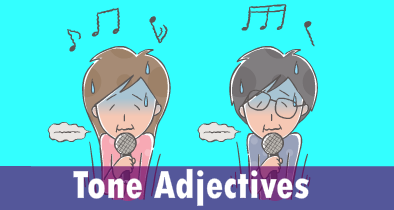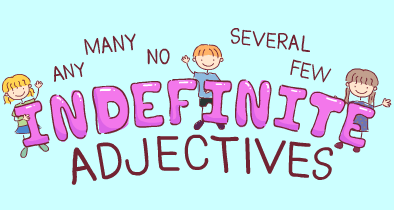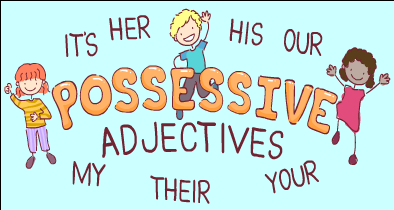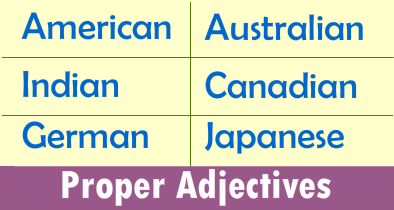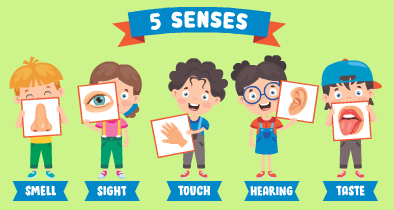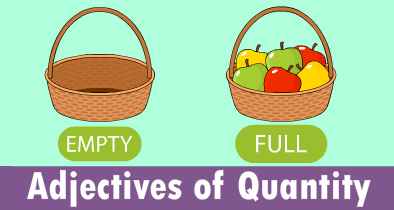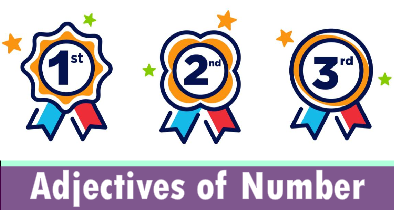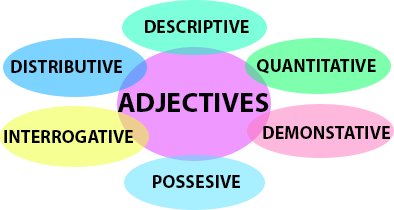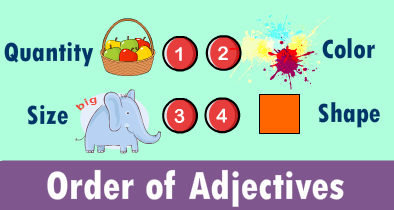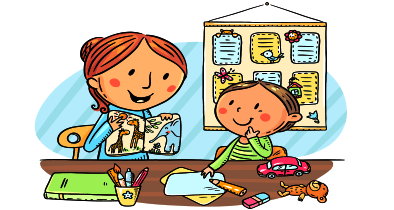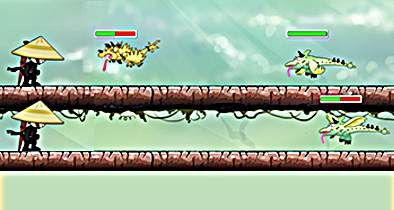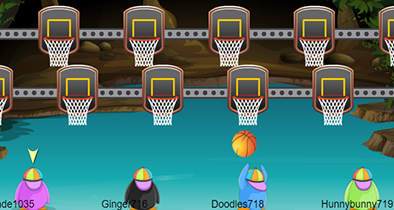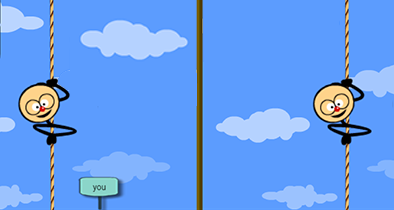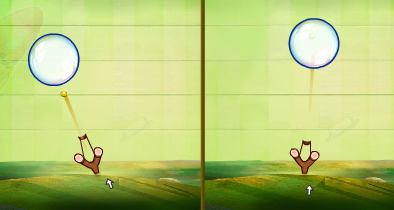Login as parent/teacher to assign this.
Adjective Games
An adjective is a word that modifies or describes a noun - a person, place, or thing. It can modify a noun or a pronoun by giving it more meaning, a description.
An Adjective Phrase is a group of words that modifies or describes a noun or pronoun. It does NOT contain a subject or a verb.
Adjectives and Nouns are both parts of speech, but they are used in different ways. Adjectives are DESCRIPTIVE words - they tell how someone or something does or is. Nouns are NAMING words that include people, places, things, and ideas.
Adverbs describe VERBS. An easy way to remember this is that they ADD meaning to a VERB. They are usually easy to spot because they often end in the suffix -LY. Adjectives describe NOUNS. They can come directly before the noun or after a verb.
Its is a possessive pronoun used to show ownership, but it is frequently confused with the contraction It's. It's = It is or It has. If you can't replace it's in the sentence with it is or it has, then you've got the wrong one!
You're is a contraction that joins the two words You Are. If you can't replace the you're with the words "you are," you've got the wrong one!
Their is the possessive in this group. There refers to a location or place. They’re is a contraction that stands for They are.
Who's = who is/has It's a contraction that combines the words who & is or who & has. Whose shows ownership - Whose bag is this?
Comparative adjectives compare two things to one another. Comparative compares two things to show which is lesser or greater in quality.
Superlative adjectives describe things that are at specific limits in a comparison. They refer to extreme qualities in a group of things, most often three similar objects. Example: Stacey is the happiest.
There are three ways to write every adjective: positive, comparative, or superlative. The easiest way to look at them is on a spectrum, from least to greatest.
Descriptive adjectives tell the quality of the noun, and really help another person or a reader to see and experience things the way that you did. The more details you can give, the more specific a picture or feeling they will be able to get in order to understand what you're telling them.
A feeling adjective is a type of descriptive adjective that details how the noun or pronoun being modified feels. There are positive feelings and there are negative feelings, but that’s just the surface level of where feeling adjectives can go.
How do we figure out which of thousands of emotions we’re feeling? A scientist named Dr. Robert Plutchik researched emotions and proposed that there are certain main emotions that influence all others. They serve as foundational emotions or core emotion.
There can be positive tones, negative tones, or neutral tone adjectives to help describe the way in which your speaker is using the words. Then there are a whole different set of other tone adjectives that give more detail towards the way in which something is said.
Indefinite adjectives are words used to describe a noun in a more general way. There is always an element of mystery when using an indefinite adjective, because we just don’t know which things they refer to specifically.
A possessive adjective is an adjective used to describe to whom an object belongs. It comes before the noun or pronoun it modifies.
A proper adjective is a word formed from a proper noun that modifies a noun or pronoun. Usually, they are formed using the names of people, or countries, or religions.
Adjectives of quality are words that give more information about the kind or quality of the noun or pronoun it modifies. They are often called descriptive adjectives. It may tell you the color, shape, size, or type of a noun. They help the reader understand exactly what you mean.
Adjectives of quality - or quantitative adjectives - are those that modify a noun or pronoun to tell how much or an amount of. They are usually uncountable in nature, so you have a general idea. (Don't get them confused with adjectives of number, which describe a specific, countable amount or position/order.) They are often identical to indefinite neural adjectives, but they differ in usage.
Adjectives of number - or numerative adjectives - are those that modify a noun or pronoun to tell a precise number or a numbered position/order. They are countable in nature, so you have a precise idea of the amount. (Don't get them confused with adjectives of quantity, which are often the same word but used to describe an uncountable amount.)
Different types of Adjectives: Descriptive, Quantitative, Demonstrative, Possessive, Interrogative, Distributive
Is There a Specific Order to Adjectives? To put it simply...YES. Native speakers often don’t realize it, but there is a certain way to order adjectives within a sentence. Beginning with a determiner, the adjectives are then arranged in a specific order.
Adjectives help describe things. Learn all about them in this online game from Turtle Diary! If you play Describing Pictures, you'll be an expert in no time!
Rev up your engines for this intense multiplayer game! Practice your typing, math, and language skills through this race to the end. Correct answers make your monster truck go faster - the faster you answer, the faster you'll go! Boost power with consecutive right answers, or opt to slow other players down. Hit the gas!
Hi-ya! Get your ninja ready to battle against monsters. Race against another player to answer questions and destroy the monsters. The quicker you answer, the more power you have. Consecutive correct answers power up your ninja skills - attack with fury or retreat to save yourself.
Dribble, dribble, shoot! Get your court skills primed for a competitive game of hoops with friends! Choose your subject area from math, English, or typing skills, and jump in the game. Answer questions quickly to earn your spot on the foul shot line. Shoot to win!
Can you figure out the missing word by guessing letters? Think hard, and try to fill in the missing letters in your mind. Select the letters to fill in the blanks. Correct guesses fill in the missing tile, but incorrect answers reveal a part of the monkey! Answer before your opponent does!
Who will make it to the top first? Climb faster than your friends by answering questions either in math, language, or using your typing skills. Correct answers propel your stickman towards the top of the rope. Answer consecutively to earn sliding props to make your opponent slip back down their rope!
Face off against your opponent armed with a slingshot. Answer questions in math, language, or use your typing skills to get ahead. Shoot stones at the correct answer bubble to pop it and score! Be careful...those bubbles will come faster the further you get into the game!

Our Educational Resources
Math Games
- Addition
- Area and Perimeter
- Decimals
- Division
- Fractions
- Shapes
- Geometry
- Multiplication
- Number
- Roman Numerals
- Statistics
- Subtraction
- Time
- Units of Measurement


